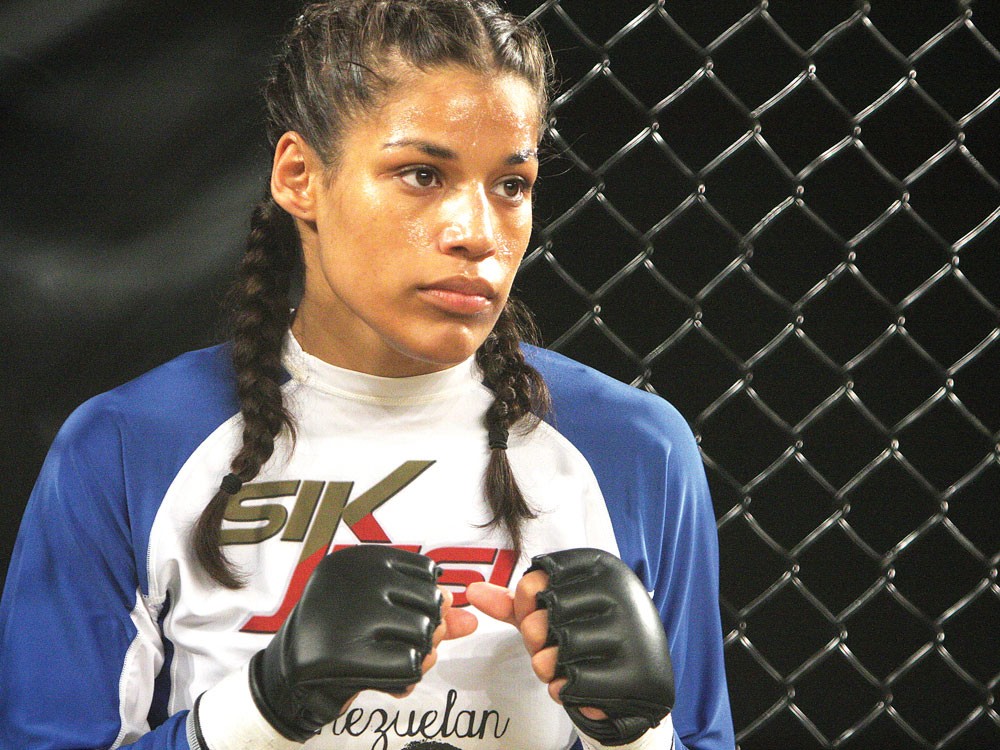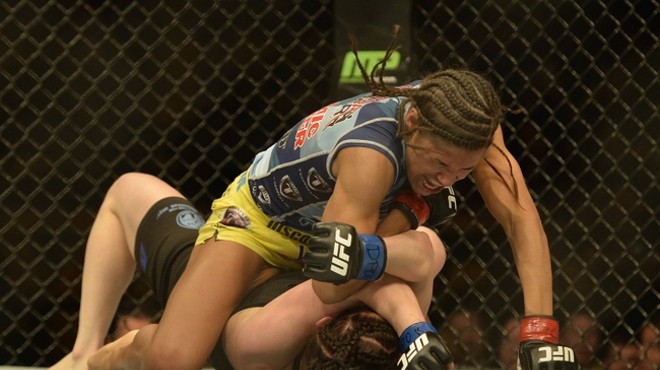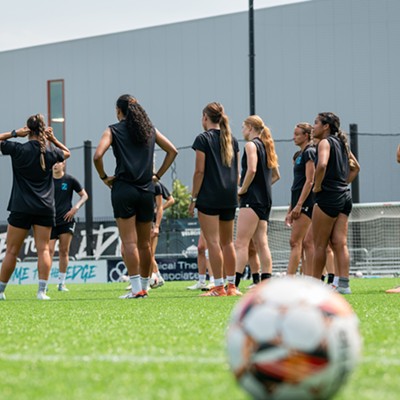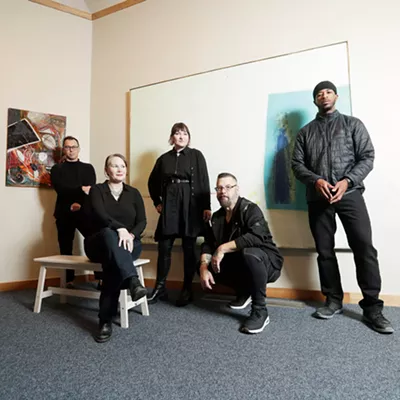The crowd roars loudest for Julianna Peña. The lights rise, and she steps into the cage. She bumps fists with her opponent. The bell rings, and she springs forward, pummeling the opponent with fists like field guns: fire, recoil, fire again.
Some people may not take women’s mixed martial arts (MMA) fighting seriously. But those people aren’t in the Pend Oreille Pavilion at Northern Quest Casino on this Thursday night.
Twenty fighters. Ten matches. And the only two women in the octagonal ring are Rachel Swatez of British Columbia and Spokanite Julianna Peña — also known as the “Venezuelan Vixen.”
Sure, there are the card girls, showing off their taut bodies between rounds. But the card girls don’t get squeezed by chokeholds or spill blood while absorbing blows to the face.
For a fighter like Peña, the ring holds as much potential for pain as for victory.
Peña, 22, never meant to get into MMA. In retrospect, she always belonged there.
“It started out when my sister invited me to a cardio kickboxing class [around 2008],” says Peña, who was born in Spokane and graduated from Mount Spokane High School in 2007. “It wasn’t really something I was interested in.”
But the teacher liked what she saw and asked Peña to stay for her class on MMA, a free-form combination of striking and grappling martial arts disciplines.
“This is my thing. This is what I should have been doing a long time ago,” she says, talking of how she used to threaten to kick people’s asses when she was younger. “I was always aggressive growing up.
“Just the fact that I was finally able to put my money where my mouth is.”
She did by that by training at Sik-Jitsu, an MMA gym on North Division Street. While preparing for a fight, Peña will train five or six days of the week, twice a day. She doesn’t work right now but relies on her boyfriend and a pair of sponsors — along with her fight winnings — to support herself.
“This is my work,” Peña says, adding that she hopes she can sustain a career in the MMA.
But good as Peña may become, she may never get a shot at MMA’s top echelon, the Ultimate Fighting Championships.
The UFC has the biggest broadcast TV exposure of any MMA organization, and the biggest payouts. But the world’s premier league doesn’t allow women.
“A lot of women are facing discrimination. … They may never fight in the UFC,” she says. “Everybody thinks [women fighting is] a joke.”
An email to the UFC seeking comment was not returned.
Peña says she’s setting her sights on a smaller fight organization, Strikeforce, which airs some fights on cable.
“But ultimately the goal is to get to the UFC — that’s the top of the food chain,” she says.
Five minutes must seem an eternity for Peña’s opponent, Rachel Swatez. Peña is pure offense, fists battering the pale Canadian around the ring. Whenever they briefly lock together, Peña thrusts her knees into Swatez’s body.
It’s Peña’s first fight in two years. She took time off to heal after discovering a torn meniscus and anterior cruciate ligament in one of those knees.
“I had been fighting on it for a year without knowing,” she says.
Round Two lasts only 25 seconds. With one last flurry of punches, Peña closes in and uses a guillotine choke, “something you learn on the school yard,” she says, to defeat Swatez.
“Does anybody want to step into the ring with her, guys?” ring announcer and KXLY anchor Mike Gonzalez asks the crowd, chuckling.
None of the ring announcers made similar remarks about any of the male fighters.
"That was the best fight of the night,” says spectator Clement Vela, 29, after the fight.
“The men were holding a lot — these girls were swinging for the fences … Just ’cause they’re girls doesn’t mean they can’t hit.”
Fighting live can help prove that women MMA fighters are equal to men, says Peña.
“I think when they see that girls are actually technically skilled and they can fight like the men, even do a better job . .
. when [people] see it live, they get more excited,” she says.
The Venezuelan Vixen doesn’t know about her next fight. Maybe a match in Japan. Maybe something moving up toward Strikeforce.
Maybe, if she can help change MMA, another step toward the top of the food chain.























